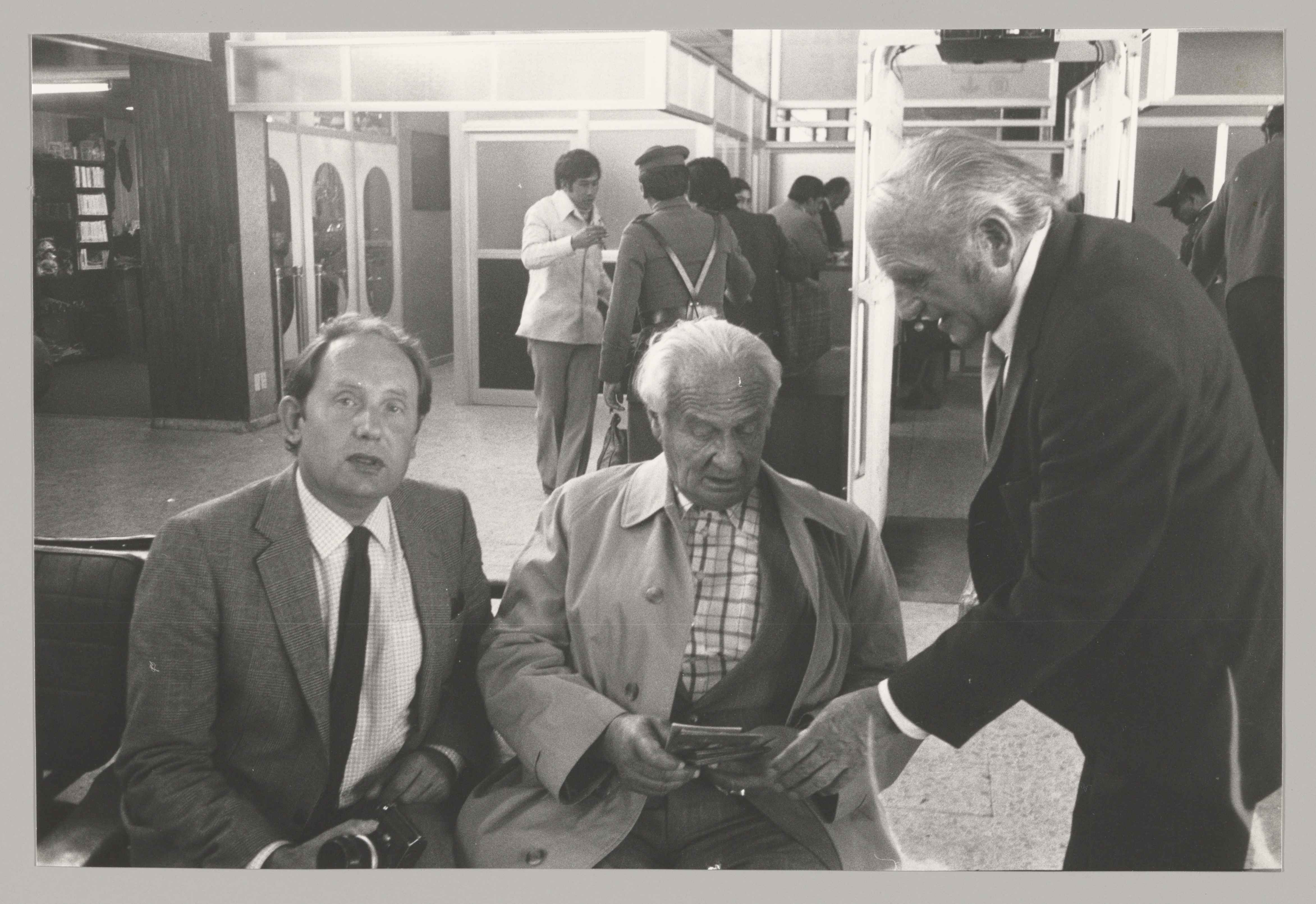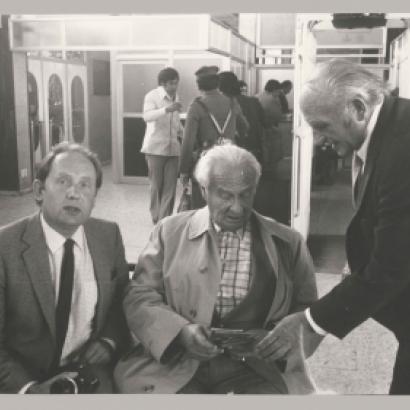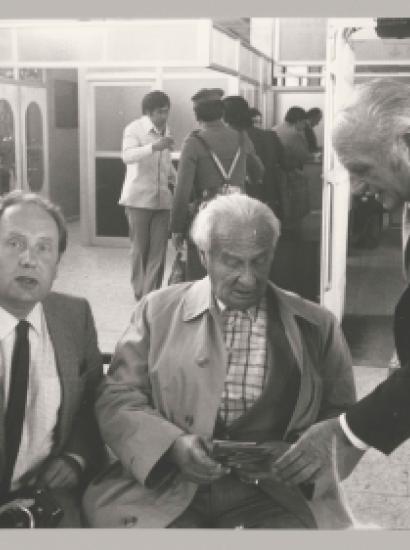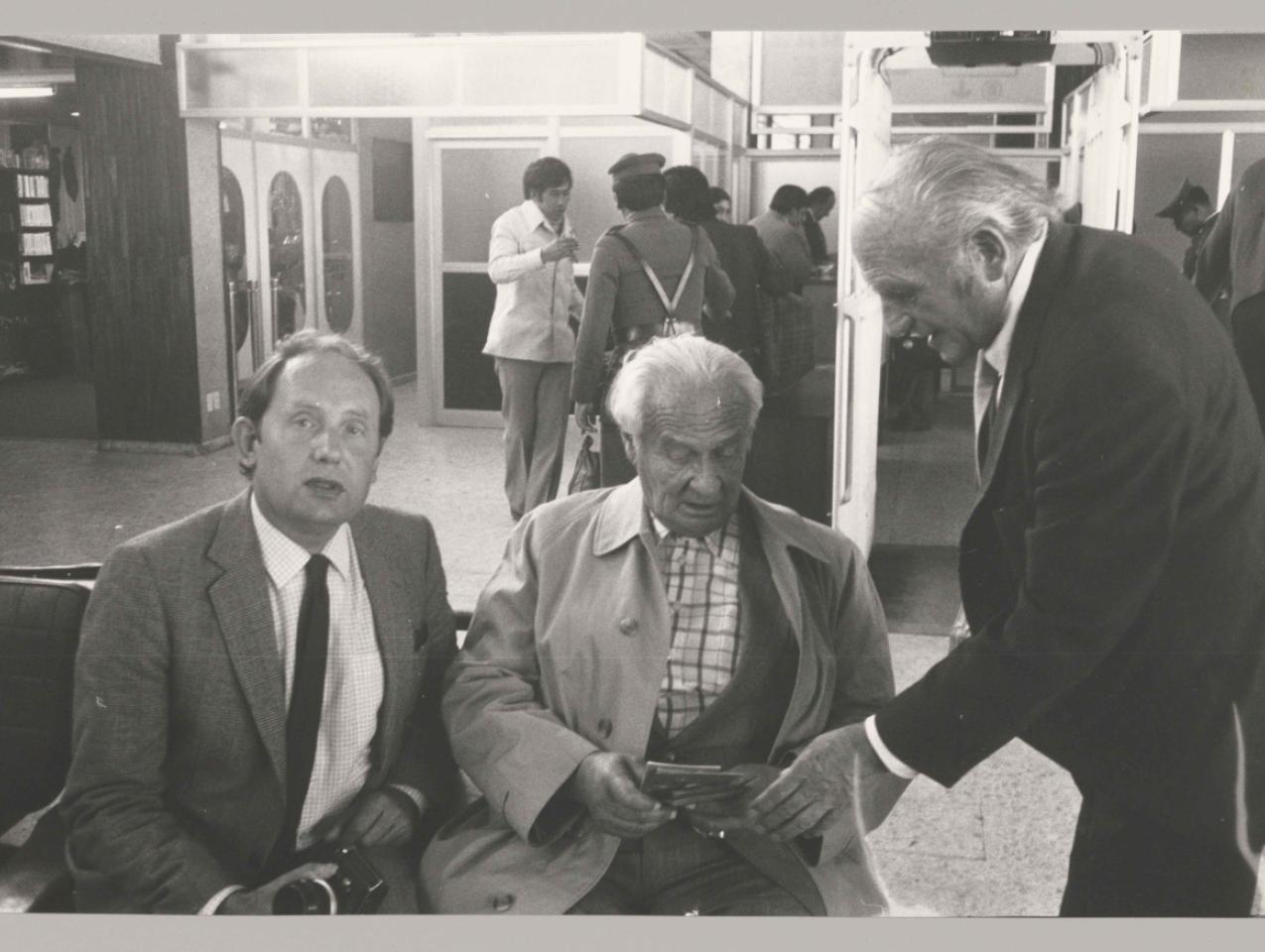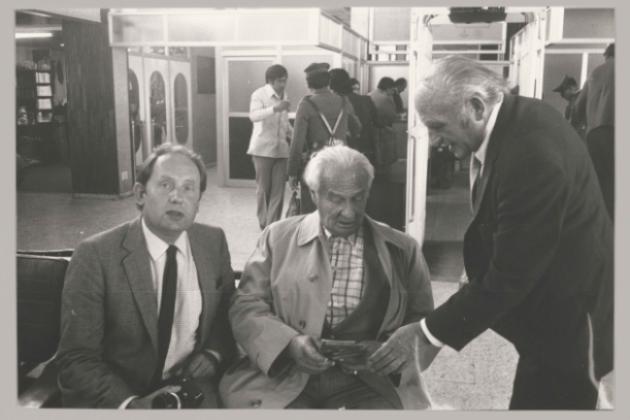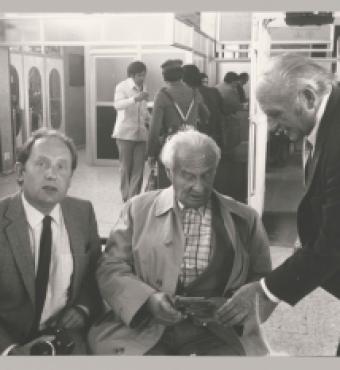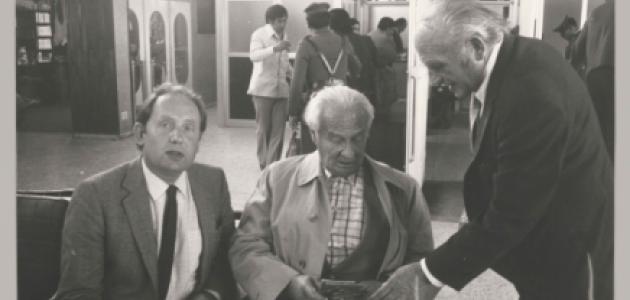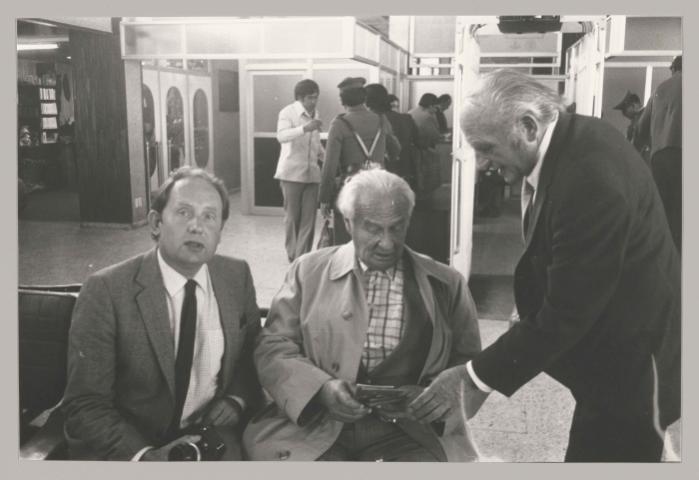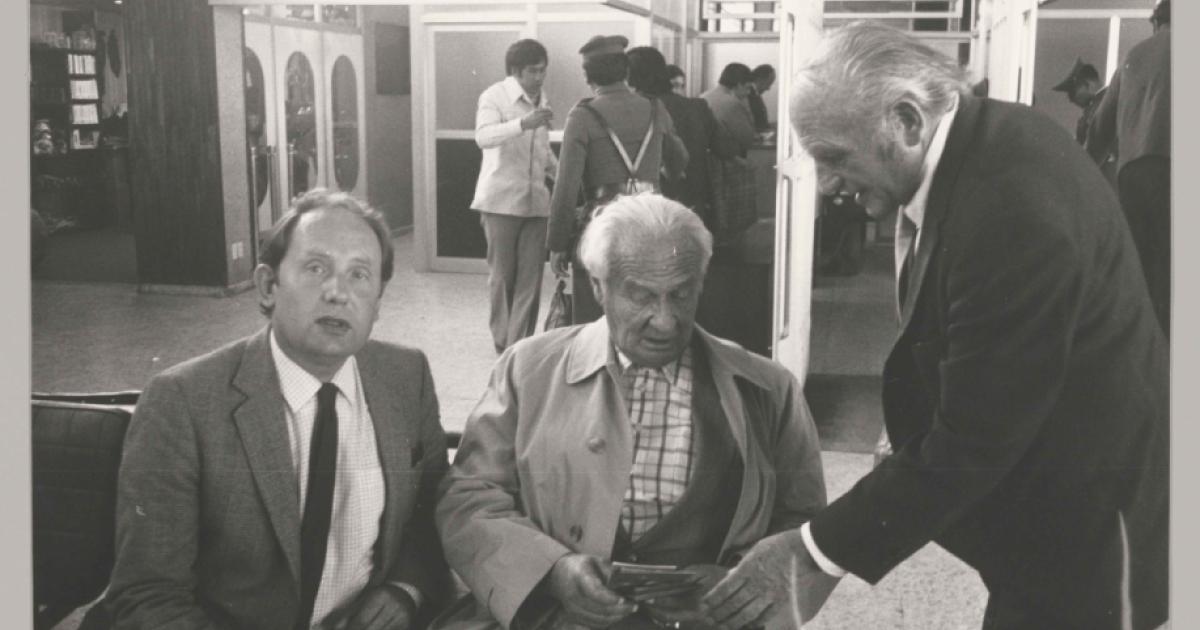Hoover Institution (Stanford, CA) – In commemoration of the 80th anniversary of Nazi Germany’s surrender in May 1945, the Hoover Institution Library & Archives has released more than 800 digitized audio recordings and transcripts of conversations relating to 20th century conflict – most notably, undercover conversations with high-ranking Nazis who had fled to South America.
Drawn from the Gerd Heidemann collection, the tapes offer unprecedented insights into the ideologies, actions, and justifications of war criminals, together with a new lens on Heidemann’s reporting and research across Africa, the Middle East, Asia, and South America from the 1960s through the 1980s.
The acquisition of this collection was led by Hoover Research Fellow and Taube Family Curator for European Collections Katharina Friedla and Hoover Visiting Fellow and University of Aberdeen Professor Thomas Weber. The release of these Heidemann tapes and the diligence of all those Library & Archives staff involved with processing the collection demonstrate Hoover’s enduring mission: to safeguard voices from history, confront the past, and shape ideas advancing freedom.
Gerd Heidemann (1931– 2024) was a German investigative reporter and photojournalist who accumulated an expansive trove of materials that document major world events, war, and dictatorship in the twentieth century. The newly released recordings comprise only a fraction of the enormous collection, which includes over 7,300 binders, approximately 800 audiocassettes, and more than 100,000 photographs.
Among the recordings are conversations from the 1970s with former high-ranking Schutzstaffel (SS) officials, including Bruno Streckenbach and Klaus Barbie, known as the “Butcher of Lyon”. Other tapes address topics spanning postcolonial warfare, the Middle East conflict, terrorism, and political scandals on both sides of the Atlantic.
The newly digitized conversations expose, often in chilling detail, the unrepentant mindsets of Nazi perpetrators. In one exchange, Barbie – while speaking freely to Heidemann while undercover – boasts about his implementation of the Holocaust in France:
And the SS was good…we were really good.
On the tapes, Barbie shares a war criminal’s perspective on atrocities we have previously known only from that of the victims’, such as the violent anti-Jewish raids in Amsterdam and their aftermath:
It was a house-to-house fight, the Jews from upstairs and us from the street. They even threw chamber pots at us and we threw hand grenades back. Hahaha...And then the drinking. We had a party. Man, we were wasted, it was such a good group of guys, a camaraderie that I never found again.
And even decades later, Barbie maintained:
For us, Hitler is still the ideal
“These men are still believers, they ultimately still have faith”, said Weber. “When it comes to first perspectives of top Nazis and of extremists, we generally have to rely on interviews that were conducted after 1945 in court rooms. And here we have first person perspectives of people where they really represent themselves the way they want to be seen [by like-minded people] and that is extremely important in trying to understand extremism – both then and now.”
Friedla says that “the release of these new recordings is relevant both for academic research and broader public understanding.” “By making the audio and transcripts widely available, the Library & Archives has helped to illuminate how extreme ideologies can endure in exile and how former perpetrators recall or even rationalize their crimes. The human dimension of extremism and the concept of historical accountability are themes that all can reflect on while listening to these first-person recordings.”
All 889 recordings and their transcripts – available in both English and German – have now been digitized, transcribed, and provided publicly for wide online access through the Library & Archives’ Digital Collections portal, where the materials are searchable by name, date, or subject. This digitization project marks a major milestone for the Library & Archives in both scope and accessibility.
“We hope this collection will be mined by students and scholars for generations to come,” said Eric Wakin, Everett & Jane Hauck Director of the Hoover Institution Library & Archives. “The recordings clearly document the beliefs and actions of perpetrators of the Holocaust in their own evil words."
The Hoover Institution Library & Archives is a world-renowned repository for primary source materials on war, revolution, and peace. With more than one million digital items – including government records, photographs, and testimonies – it preserves evidence of history’s most consequential events and actors.
To watch the event that followed the opening of the Gerd Heidemann collection and previewed the new TV documentary by Dutch filmmaker Foeke de Koe, click here. The first screening of this documentary in the United States will take place at the Hoover Institution Library & Archives in summer 2025.
To explore the digitized materials from the Gerd Heidemann collection, click here.
Elements of the Gerd Heidemann collection are open for research in the Library & Archives reading room and online. Plan your visit.
For coverage opportunities regarding the Library & Archives, contact Lauren Covetta at lcovetta@stanford.edu




